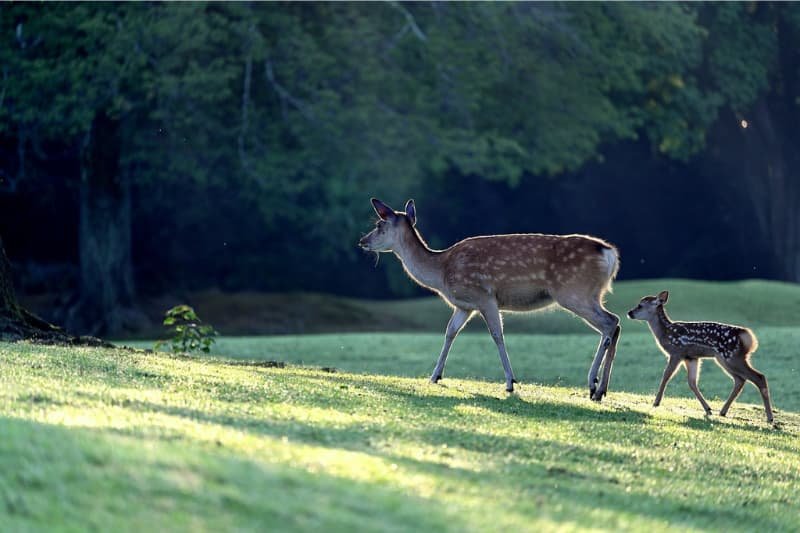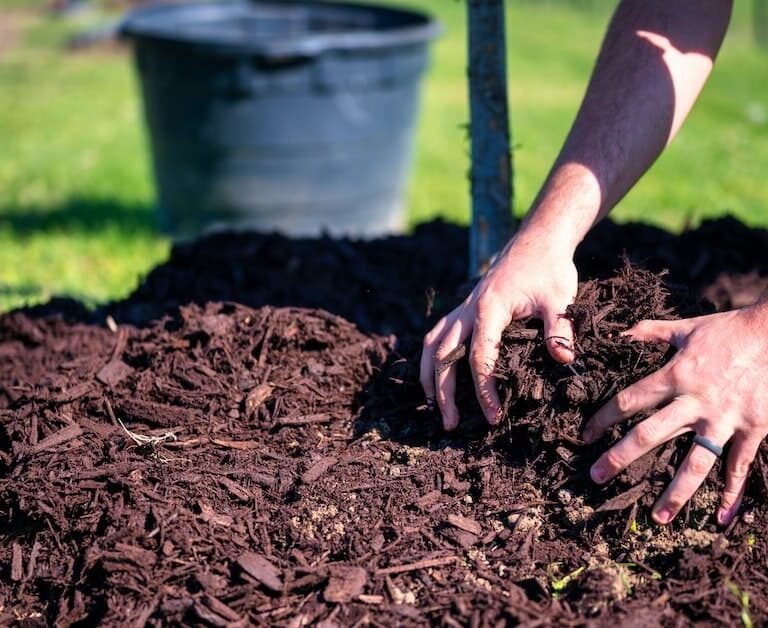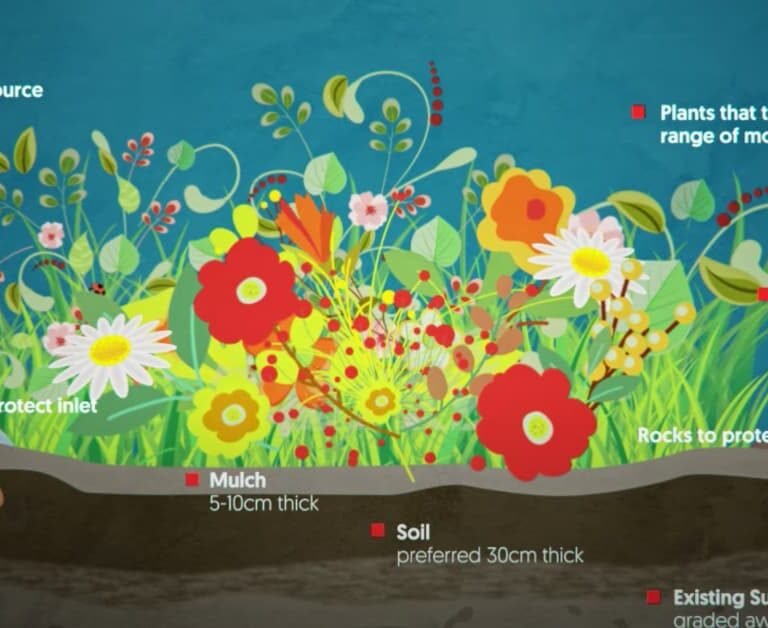
Protecting your garden from unwanted animals can be a challenging task for gardeners of all levels.
Whether you’re dealing with deer, rabbits, or even pesky pets, their presence can quickly turn your hard work into a disaster.
Fortunately, there are numerous strategies and deterrents you can implement to keep these animals away and protect your garden.
In this article, we’ll share tips and tricks on how to keep unwanted animals out of your garden.
From fencing and barriers to deer-proofing strategies and the use of galvanized steel hardware cloth, we’ll provide you with the knowledge and tools needed to keep your garden safe and thriving.
Short Summary
- There are various wildlife and pet deterrents that can be used to protect gardens, such as orange peel, coffee grounds, double-sided tape coated with pepper, white vinegar, and motion-activated strobe lighting.
- Fencing, coyote rollers, welded wire mesh guards, and deer-resistant plants can also be used to keep unwanted animals out of the yard.
- Galvanized steel hardware cloth can be used to build a barrier around plants and vegetables, and to make baskets for plants to sit in, protecting their root systems.
- Highly fragrant, prickly, hairy, or rough foliage plants can deter deer, while motion-activated sprinklers can scare away wildlife.
Animal Deterrents
Various wildlife and pet deterrents can be used to effectively protect gardens from potential damage caused by these animals.
For instance, using scents such as orange peel and coffee grounds can deter pets from entering the garden.
Additionally, motion-activated devices such as strobe lighting can effectively keep coyotes away from the garden.
These methods are highlighted in the author’s informative post which has been shared 594 times, indicating their effectiveness in keeping unwanted animals out of the garden.
In addition to scents and motion-activated devices, other methods such as fencing and coyote rollers can be used to protect the garden from coyotes.
For deer, suitable fencing or deer-resistant plants can be effective.
Motion-activated sprinklers can also be used to scare away wildlife.
By utilizing these various deterrents, gardeners can protect their plants and vegetables from potential damage caused by unwanted animals.
Fencing and Barriers
Galvanized steel hardware cloth can be an effective barrier to prevent wildlife and pets from damaging plants and vegetables in the garden.
This type of fencing material is made from durable galvanized steel wire, which is resistant to rust and corrosion.
It can be used to build a sturdy fence around plant beds or vegetable gardens, providing a physical barrier that animals cannot easily penetrate.
When building a DIY fence using galvanized steel hardware cloth, it is important to follow a few key steps.
First, a narrow trench should be dug around the perimeter of the garden area.
Then, wood stakes should be inserted into the trench to hold the fencing material in place.
The wire should be installed about 12 inches away from plant beds or fencing, with enough height to prevent animals from jumping over it.
Additionally, natural repellents such as highly fragrant, prickly, hairy, or rough foliage plants can be planted near the fence line to further deter animals from trying to enter the garden.
Deer-Proofing Strategies

Deer-proofing strategies can include the use of natural repellents and fencing to prevent damage to plants and vegetation in the garden.
Deer are known to be attracted to certain plants, especially those with tender foliage or budding flowers.
To keep deer out of the garden, it is important to use effective deer-proofing strategies. One such strategy is the use of deer-resistant plants.
These plants have a natural deterrent effect on deer and can help to keep them away from the garden.
Some examples of deer-resistant plants include lavender, poppies, and daffodils.
Another effective strategy for deer-proofing the garden is the use of natural deer repellents.
These repellents work by attacking the deer’s sense of smell, making it difficult for them to find their way to the garden.
Some natural deer repellents include garlic, cayenne pepper, and predator urine. These repellents can be applied directly to the plants or around the perimeter of the garden.
It is important to note that while natural repellents can be effective, they may need to be reapplied frequently to maintain their effectiveness.
In addition to natural repellents, fencing can also be an effective way to keep deer out of the garden.
A sturdy fence with a height of at least 8 feet can prevent deer from jumping into the garden and causing damage to the plants.
Galvanized Steel Hardware Cloth
To fortify your garden against animal intruders, consider using galvanized steel hardware cloth, which can provide a durable and effective barrier for your plants and vegetables.
Galvanized steel hardware cloth is made from steel wire that has been coated with zinc, which makes it resistant to rust and corrosion.
This durable material can withstand the elements and provide long-lasting protection for your garden.
Building barriers around your plants and vegetables using galvanized steel hardware cloth is an effective way to protect them from animals such as rabbits, birds, and squirrels.
The wire mesh can be cut to fit any size or shape, making it versatile for use in various garden layouts.
To install the barrier, dig a narrow trench around the area where you want to protect your plants and vegetables and insert wooden stakes every few feet.
Attach the galvanized steel hardware cloth to the stakes, ensuring that the barrier is installed about 12 inches away from the plant beds or fencing.
This will prevent animals from reaching over or digging under the barrier and damaging your garden.
Overall, using galvanized steel hardware cloth is an easy and effective way to protect your garden from unwanted animal intruders.
FAQs:
Are there any natural remedies for deterring unwanted animals from my garden?
Natural deterrents such as orange peel, coffee grounds, and white vinegar can be effective in deterring unwanted animals from gardens.
Highly fragrant, prickly, and rough foliage plants can also be used. However, the effectiveness of these methods may vary depending on the specific animal and situation.
How high should a fence be to keep deer out?
The recommended height for a deer fence is at least 8 feet but can vary depending on the species of deer in the area.
Effective deer deterrents include motion-activated sprinklers, deer-resistant plants, and deer repellents that attack their sense of smell.
Can motion-activated sprinklers harm wildlife?
Motion-activated sprinklers can startle and deter wildlife without harming them.
However, there are alternative methods such as using white vinegar, fencing, and deer-resistant plants. Wildlife safety should always be prioritized when implementing deterrents.
Is galvanized steel hardware cloth safe to use around plants and vegetables?
There are safety concerns regarding the use of galvanized steel hardware cloth around plants and vegetables.
Alternative materials, such as plastic or vinyl-coated wire, may be safer options. It is important to consider the potential risks and benefits before selecting a material for plant protection.
Does the author have any tips for dealing with specific types of animals, such as raccoons or squirrels?
The author does not provide specific tips for raccoons or squirrels. However, the post suggests using effective repellents for garden pests and offers tips for humane animal control, such as motion-activated sprinklers, fencing, and deer-resistant plants.




